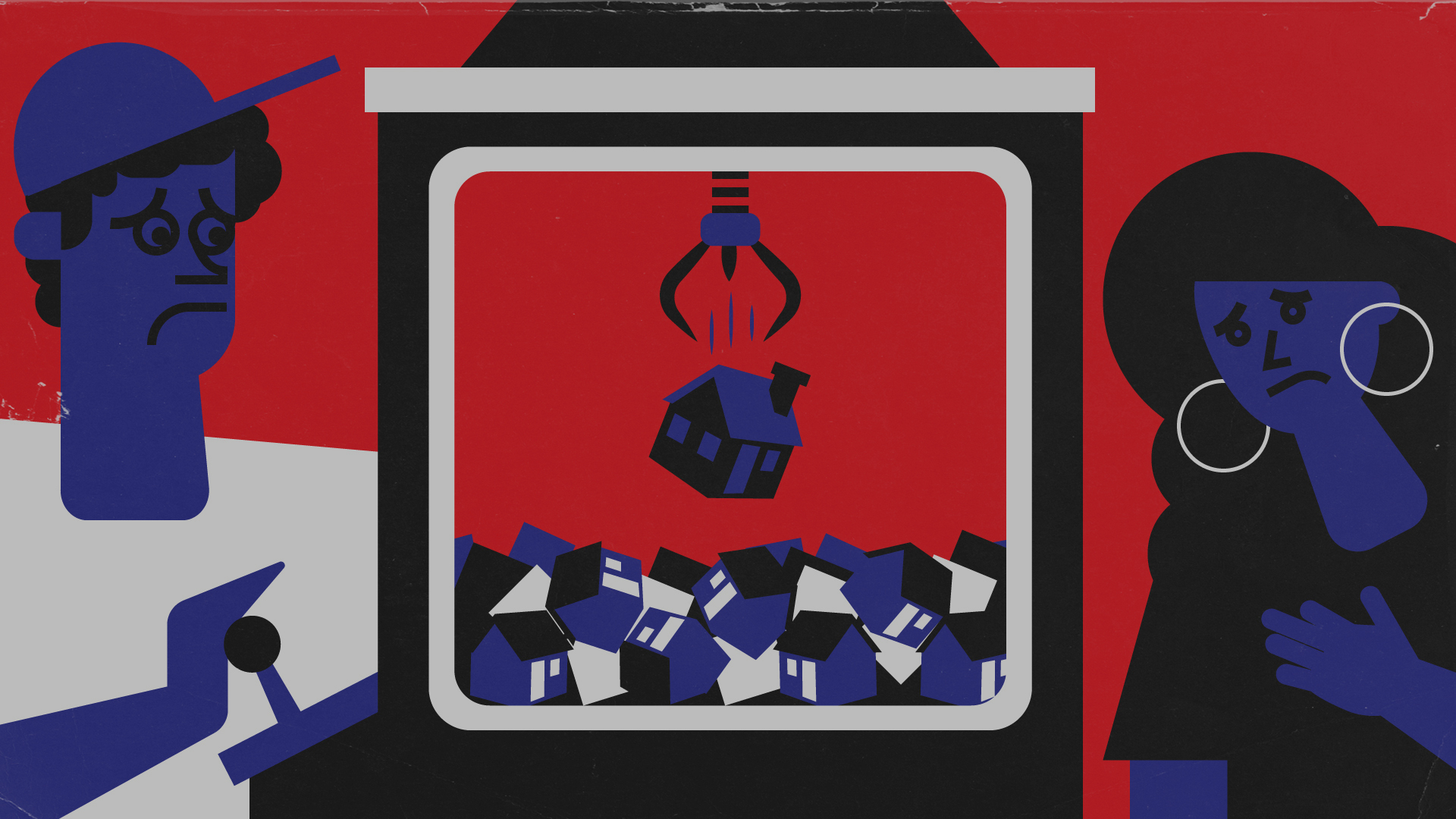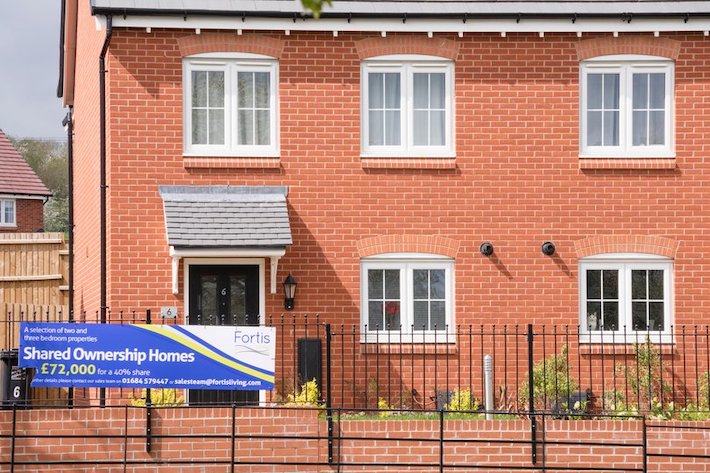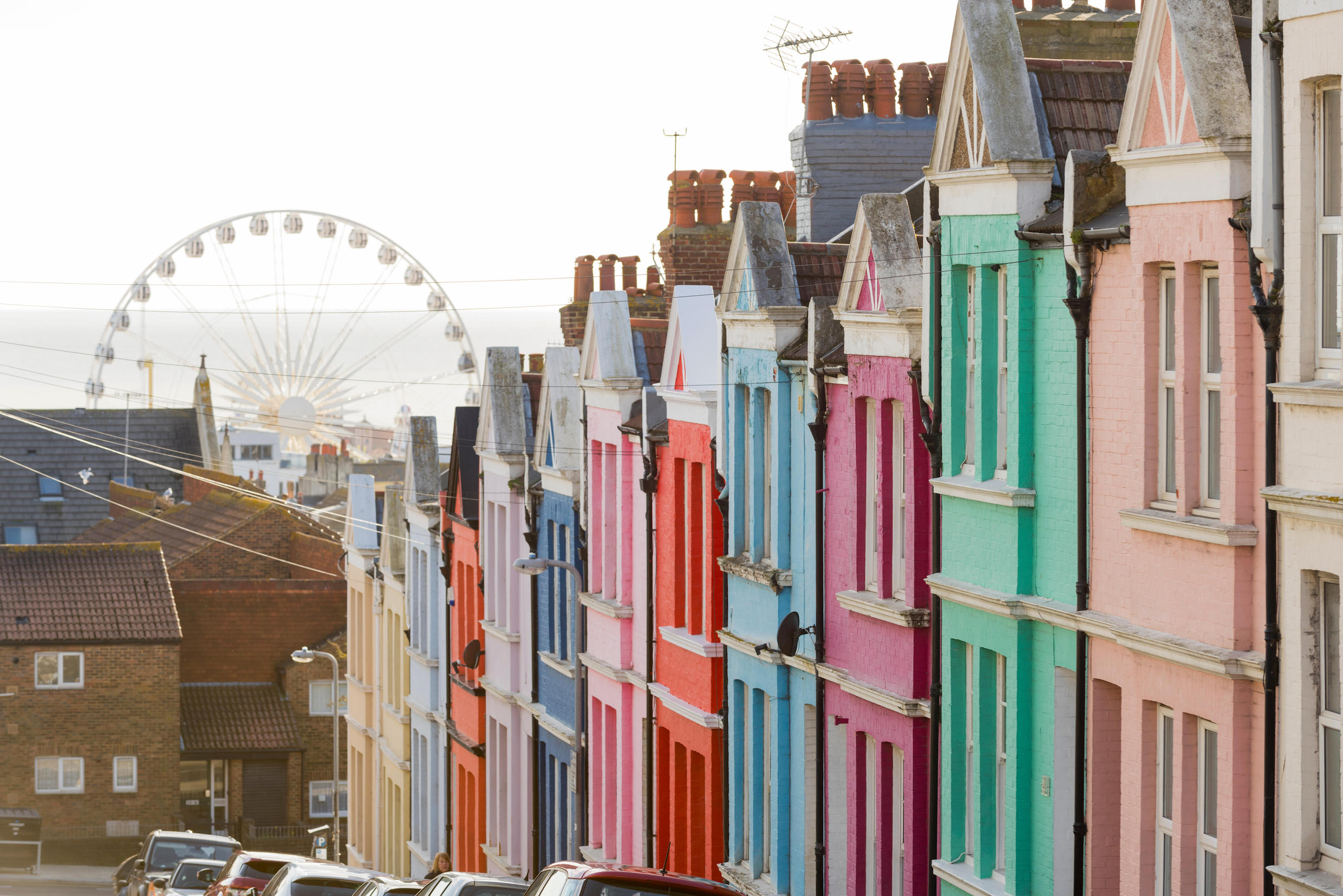In one of the most-watched reels on her Instagram feed, DIY junkie and interiors influencer Sharon Davies unveils a beautiful staircase she has single-handedly restored. A montage of her handiwork shows a painstaking process stripping back and sanding each tread, painting the entire flight and the bannister a crisp white, before fitting a striped carpet runner together with black metal stair rods herself.
The result is spectacular, but the title of the clip tells an even bigger story: “Creating a dream staircase in my council house - the final reveal.”
Davies is one of a new wave of influencers making renting appear desirable and rental property something you can truly make to feel your own and to take pride in; alongside her one could list designer Medina Grillo (@grillodesigns), who rents privately, and Alex Wren (@alexandremiwren), who has just accepted the keys to her council property after experiencing homelessness and is moving this month. She’s also charting her journey to turn the empty and bare-plastered box into a comfortable home for her and her one-year-old son.
Davies has amassed almost 180,000 followers to her @diaryofmy_home_life account by diarising the budget upgrade of her small council house into a beautiful, stylised and carefully planned home. Along the way, while dishing out tips on hanging your own wall panelling, she’s also shared the painful details of her recovery from addiction and her quest for stability that started with securing a permanent rented home of her own.
A new social tenancy offers the keys to a property with a fitted kitchen and bathroom but often very little else - not even flooring
Inevitably, she’s also faced criticism. Comments on her posts often question why she should be entitled to social housing at all, or challenge her for investing so much of her own time, energy and money into a property that she will never own. The worst are simply personal attacks based on her status as a social tenant: “Oh please, you live in a council house, you’re below the majority of people pipe down”; “Guarantee it’s taxpayers’ money yah spending on your council house that we pay for too!”; “Imagine being proud of council housing!”. Study after study shows how the stigma attached to social housing affects tenants’ lives, with residents describing being made to feel like “second-class citizens”, an “underclass” and “benefit scroungers”.
But Davies’ pride in her own home is an answer enough. Her voice speaks loudly, and in language that everyone understands, to a very important point: social renting is not a second-class tenure.
These accounts are a sort of public service. Not only are they busting the myth that home ownership is the only tenure to aspire to, they are also showing - often in the most graphic terms - the reality of renting. We learn, for example, that it’s possible to create a dream home in a private rented property; but we also see that the “freebie” of social housing is anything but.
As Alex charts in one of her early videos, a new social tenancy offers the keys to a property with a fitted kitchen and bathroom but often very little else. There is no flooring provided, and even the cheapest carpets and lino coverings are pricey in today’s cost of living crisis. This is no easy route or great handout. A social home comes with plastered walls and a fitted bathroom and kitchen - but that is al. It is a house like any other, allocated on the basis of need but requiring investment to turn it into a home.
These collections of short video clips achieve something remarkable. As the government’s language around benefit cuts chips steadily away at the reputation and livelihoods of social tenants, removing their last lines of support, tenants themselves are using social media to shift the narrative about their lives. These influencers are making the case for social housing better than any politician has - and in recent years far too few have even tried.
What society really needs to change the perception of social housing are real, complicated stories, not a PR-sanitised version of tenancy
Housing associations themselves have tried to make this argument many times, with very limited success. Some years ago, the social housing trade magazine Inside Housing ran a campaign called “Housing Benefits” aimed at demonstrating the true value social housing adds to local communities. This month, the large London conglomerate L&Q is having another go, launching its “I am social” campaign to fight against the idea that residents living in its homes are “workshy” and “lazy” and living in “crime-ridden sink estates”. It wants to tell the stories of its five resident ambassadors, including a first-generation university student and a retired nurse. The problem with such efforts is they are too easily labelled special pleading: social housing providers need government cash to support their work and of course they’re going to say they do a good job to secure it, especially with an election just around the corner.
And anyway - and I think this really matters - not every child who grows up in social housing is going to be the next undergraduate. It should go without saying that this doesn’t make their security or happiness in their home any less important. What society really needs to change the perception of social housing are real, complicated stories, not a PR-sanitised version of tenancy. That includes personal lives that have taken false turns, and the desolate view of a new social home with floors stripped bare and walls naked to the chipped plasterboard - and then turned around by the love and imagination of those who care for them, and call them home.
But this raises another question: why is it that making this absolutely crucial argument has been left to tenants themselves, on unregulated social media, left to the mercy of cruel online trolls?
Politicians have failed to represent tenants and their lives fairly, accurately or with compassion for decades. If the severity of the housing crisis we’re in and the desperate need to build more social housing finally changes that, it will lead to a welcome shift in attitudes across society. And for those about to step up and make that case, maybe it’s time to start taking some tips from Instagram and TikTok.





